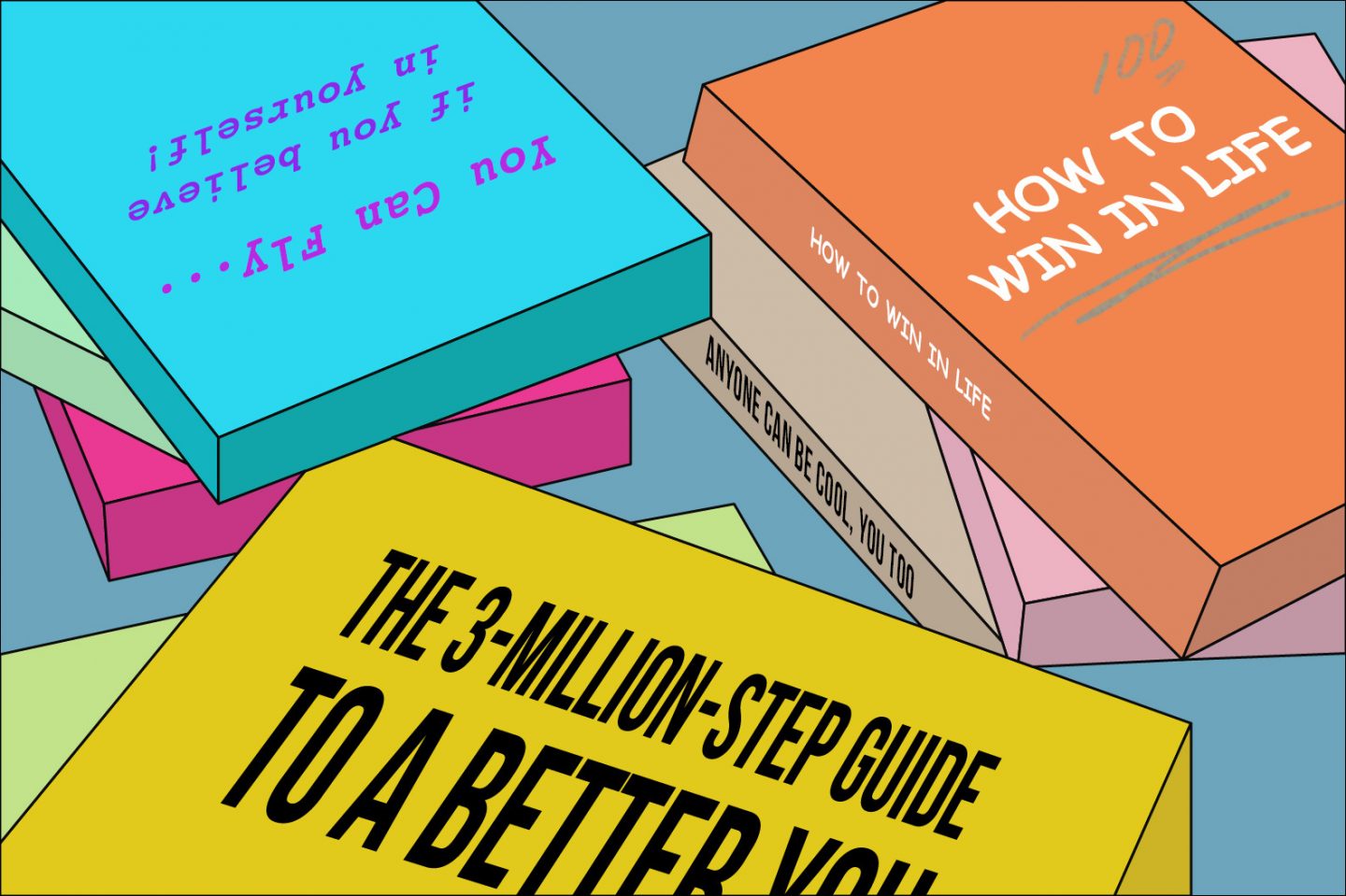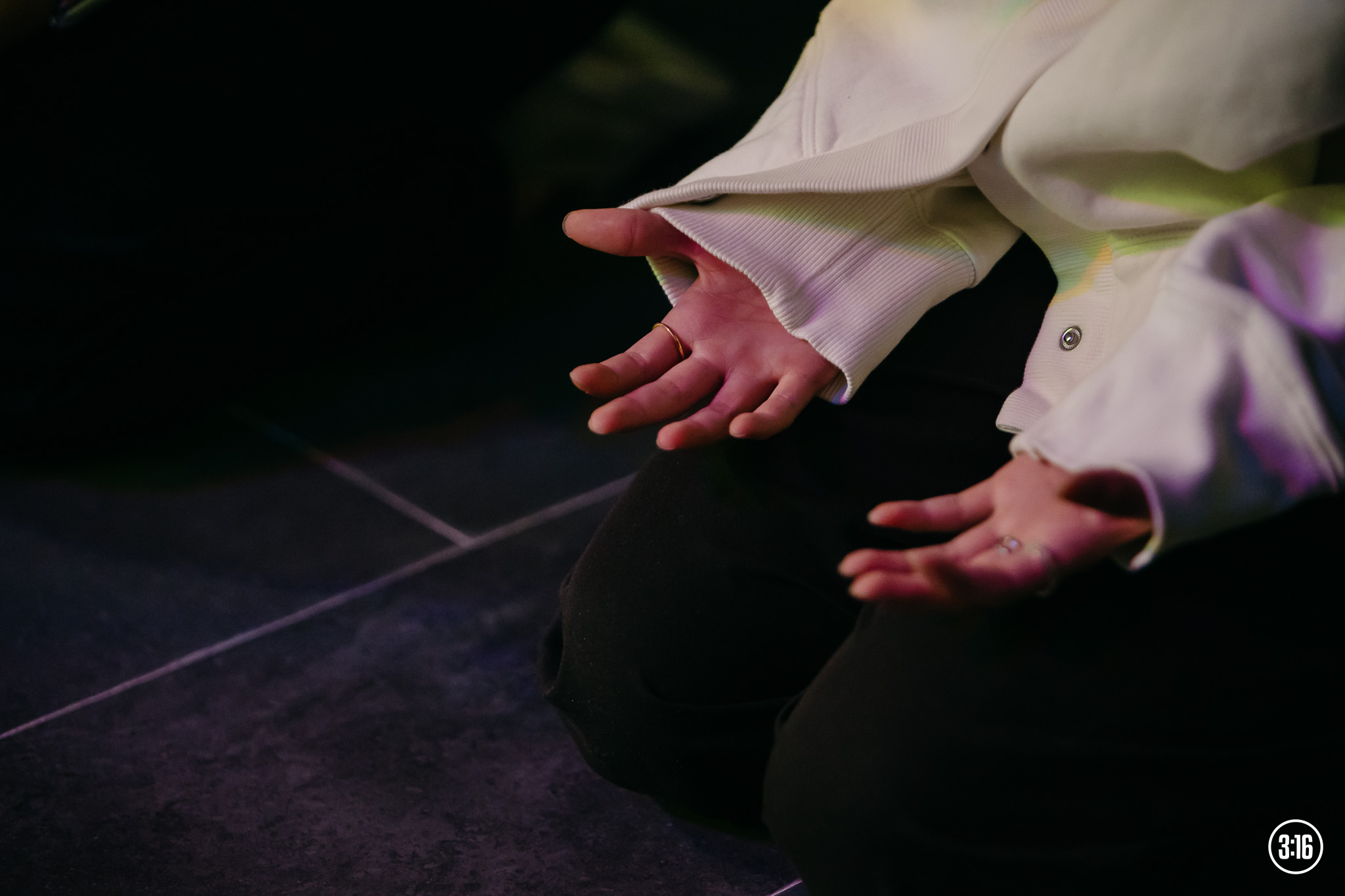Help?
We are all searching for purpose, meaning and fulfilment in the lives we lead. We are a people looking for help. Although we try to appear put together on the outside, the rate at which self-help books are being purchased point to a different
reality: We are struggling, and we are desperate for help.
“Self-help” is an industry that generates almost US$10 billion per year in America alone, and the industry shows no signs of slowing down. Whether you want to read about fixing broken relationships, living healthily, financial security, or finding contentment, there’s a self-help book — or 50 — out there for you.
And if you are willing to spend the time and the money, there are myriad options for self-help conferences, webcasts, and personal coaching, to go with the thousands of books you can read.
We want a quick way out of mending difficult relationships without having to work through the pain. We want material success without having to work diligently. We want to feel happy without having to face our own brokenness.
It’s common for self-help books to tout that they offer the key to “win in life and business” and “unlock the way to life’s riches.”
However, these suggest that deep-rooted problems can be addressed merely by temporary, gratifying illusions.
The simple solutions offered by self-help (3 keys! 7 steps! 10 points!) are so attractive compared to the complex and challenging lives we lead. Almost too easy. We want a quick way out of mending difficult relationships without having to work through the pain. We want material success without having to work diligently. We want to feel happy without having to face our own brokenness.
In trying to help ourselves, we are moving away from the truest source of Help: Jesus Himself.
Jesus is clear, unapologetically so, in telling his followers that “in this world you will have trouble” (John 16:33). This life is not meant to be perfect. In fact, Scripture tells us this earth isn’t our real home — we are “foreigners” on this earth (Hebrews 11:13) and our real home is in heaven (Philippians 3:20). If we’re longing for happiness and satisfaction on this earth, we will always be disappointed.
The self-help industry is founded on the premise of the power of Self. Apparently, you can make everything better on your own if you just read the right books and access the right resources. Ultimately, the focus of self-help books comes down to a reliance on self and self-sufficiency to make things right.
We are faith-beings, designed for receptivity of God’s activity, availability to God’s ability.
Such platitudes of positivity, such humanistic thinking, is not how we are called to live.
Man is a contingent and dependent being, made to receive God’s love and grace. Our limited selves are completely insufficient when we are searching for answers beyond ourselves. We are faith-beings, designed for receptivity of God’s activity, availability to God’s ability.
Where else shall we look for our personal purpose than in our Creator? The One who knows our purpose, our design, what makes us tick and what makes us love recklessly.
Contrary to the pressure to be self-sufficient and reliant, we are instead called to deny ourselves and take up the cross. To be wholly and completely in submission to God and His will over our lives.
Writing to the Corinthians, Paul explains that Christians have the treasure of Christ Jesus “in earthen vessels, that the surpassing greatness of the power may be of God and not of ourselves” (2 Corinthians 4:7). The container is not regarded as the object of value, but the value is in what it contains.
Living a life for our own perceived purposes, with desires apart from Jesus, will end up with us feeling burnt out, tired, disillusioned. An empty chase is all there is when we try to seek for a purpose other than what we are designed for.
Self-help puts us in a position of completely responsibility over what weren’t ours to control to start with. If self-help posits that we can change our destinies, chart our own course, and be the game-changer in our lives, it also means that when things go wrong, the fault is solely ours.
Until we realise that we can’t control anything in our lives, until we see that it is not our flesh-driven choices that make our lives fulfilling, until we understand that only God’s sovereignty and His promises are better than what we can ever imagine, until we begin to die to ourselves and live for Him, life is at best mundane.
We are not living for ourselves, but we are living for a greater narrative that He put together even before our first breath.
The invitation to be a part of this story has been extended since we first received Christ into our lives as Lord and Saviour. Your help has always been with you. Ask.









